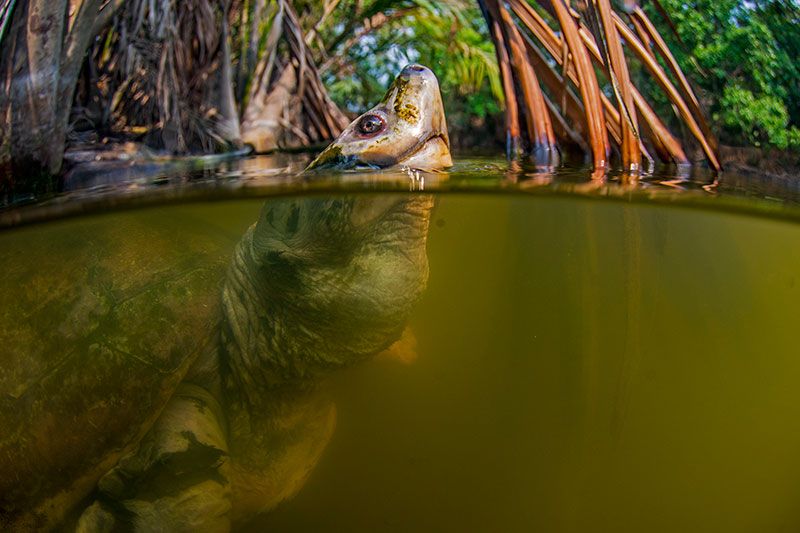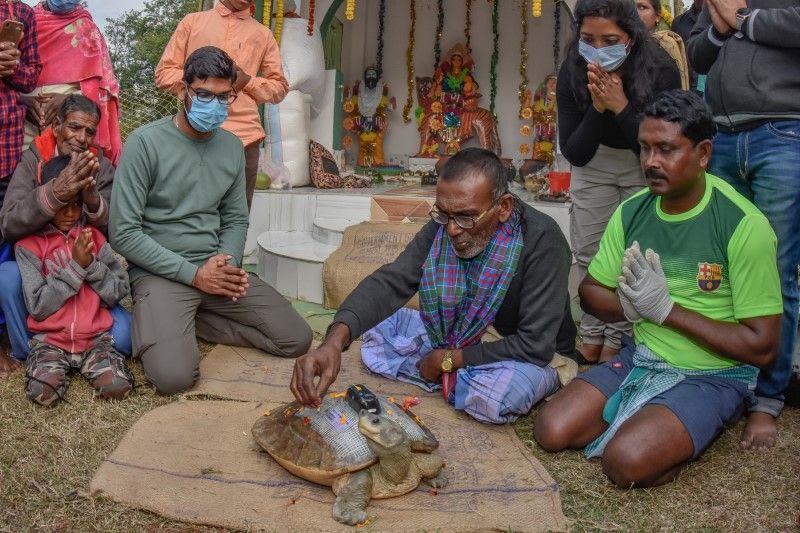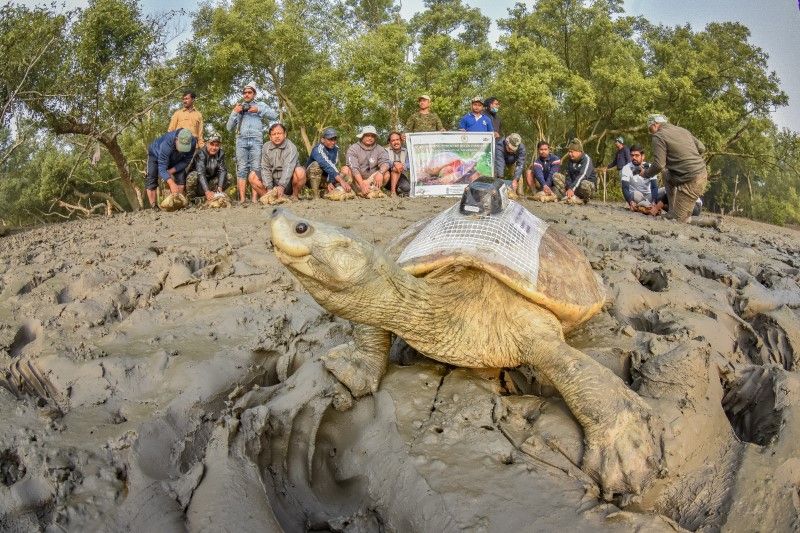Lost and found: restoring rare terrapins in northern India

PTES has been supporting TSA for several years to successfully reintroduce an ecologically viable population of terrapins back into the wild
Searching swamps for northern river terrapin survivors
The northern river terrapin is widely regarded as one of the most endangered freshwater turtles in the world. In India, the terrapins – also known as Batagur baska – were once widespread in coastal mangrove swamps, rivers, and estuaries in Odisha and West Bengal states. But their numbers plummeted in recent decades due to over collection of adults and eggs for food, as well as sand mining and pollution. Sadly, the Odisha population is likely lost, with the last known nest collected by a fisherman in 2008.
With dwindling hope for the remaining West Bengal population, a team from Turtle Survival Alliance and the Sundarban Tiger Reserve (STR) West Bengal Forest Department, carried out an investigatory field trip in 2008. They discovered eight males, three females, and one juvenile surviving in a pond at the Sajnekhali wildlife sanctuary within the reserve. These few terrapins enabled the team to establish a modest but critical conservation breeding programme. Their aim was to establish secure colony populations in captivity, in order to rewild the species into protected areas of reserve.



Scaling up and branching out
The breeding began and now, several years on and with support from PTES, the captive programme can be hailed a success. There are 370 juvenile northern river terrapins of various ages and sizes. Today, having developed one of the two largest captive breeding colonies of B. baska in the world (the other in Bangladesh), Sundarbans Tiger Reserve management team and Turtle Survival Alliance are ready to take bold new steps to conserve this species. The Batagur Baska Vision Plan 2030 is being drafted and will be initiated through this next PTES-funded project. It will be the first in a series of big steps to ensure the long-term survival of a species through a multi-pronged approach.
PTES has been supporting TSA for several years. The team will upgrade their existing facility and create a ‘model species conservation centre’. The breeding plan will be improved to include controlling the offspring sex ratio, restoration and protection of key nesting habitats, and monitoring the released, with enhanced local participation.
Moving forward step by step, gradually yet cautiously, the team aims to successfully reintroduce an ecologically viable population of terrapins back into the wild. The project is a priority for this species and is fully supported by experts from the IUCN’s Tortoise and Turtle Specialist Group. We hope that the team achieves their aim of restoring these individuals back to parts of their former range, lifting them out of their critically endangered status.
We want to give northern river terrapins a brighter future; with your help we can make a difference.
Header image credit Dhritiman Mukherjee
